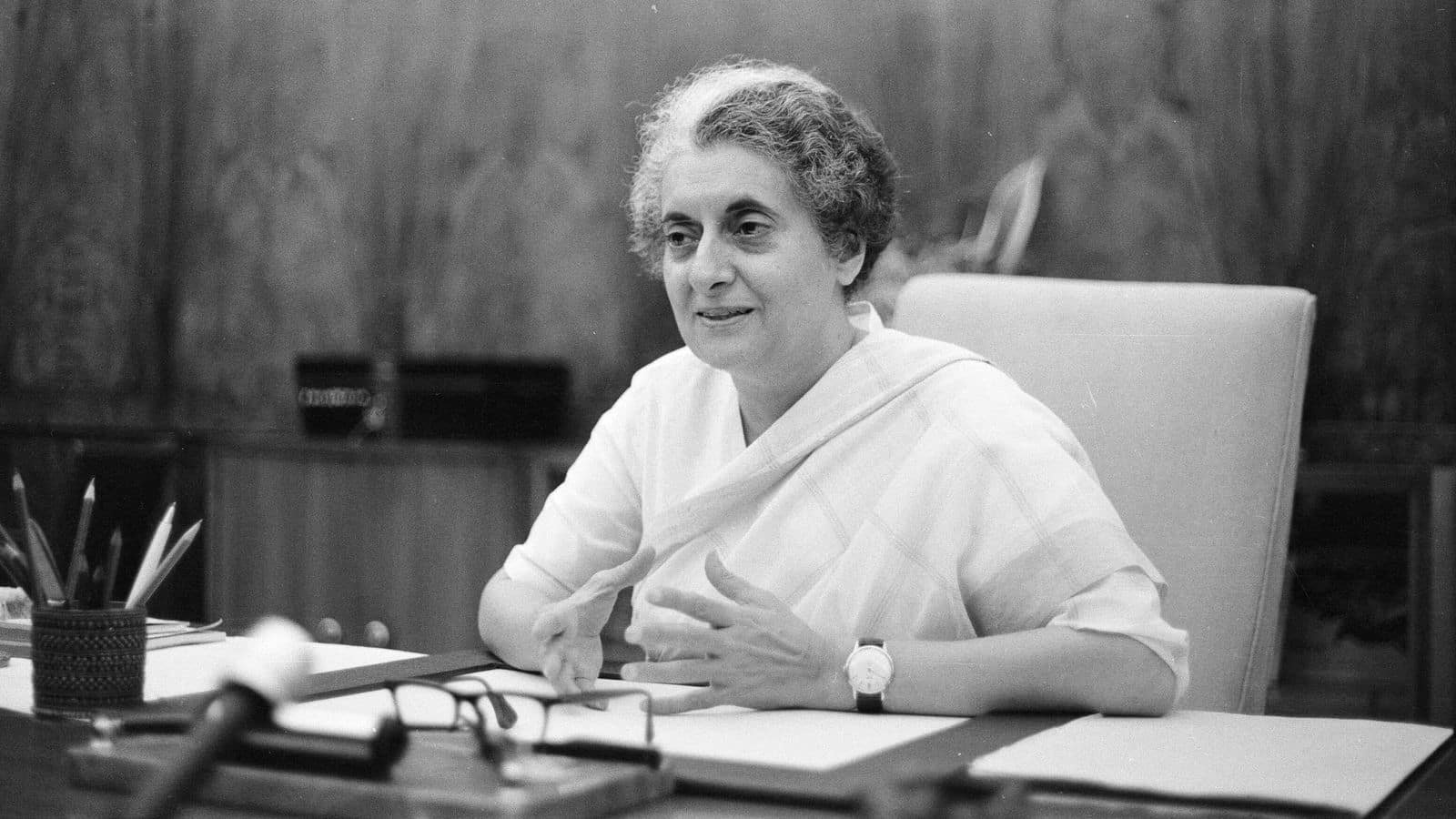Inauguration of Indira Gandhi, 1966
By Milan Perera, Third Year English
On 19 January 1966, Indira Gandhi became prime minister of India. Despite her initial reluctance to enter politics, Indira Gandhi was destined to be the leading light in Indian politics. As the only child of Jawaharlal Nehru, the first Prime Minister of independent India, Indira Gandhi's ascent to power was inevitable. She served as the prime minister of India for a staggering 16 years in four terms. Even after she died in 1984, her presence in the Indian political landscape is inescapable whether one likes it or not, as the decisions she was to make defined India's destiny for years to come.
Charles de Gaulle once jokingly complained, "How can anyone govern a nation that has two hundred and forty-six different kinds of cheese?" but whoever governs India has the enormous task of not only dealing with a rich culinary diversity but also a vast terrain where 120 languages and 19,500 dialects spoken by 1.4 billion people with a cornucopia of faiths and beliefs. India has never been a cultural monolith despite the prevailing perception at the time among the European colonisers but a gargantuan edifice made out of definable ethnic and religious entities held together by a mortar loosely coined as "Indian" identity. It is no assignment for a novice to govern India. However, Indira Gandhi was no novice as she learnt the intricacies of governing a democracy like India from her father as she accompanied him on various diplomatic travels despite her reluctance.
Indira Priyadarshini Gandhi was born in 1917 in Allahabad to Jawarharlal Nehru and his wife, Kamala Nehru. Her childhood was lonely and unhappy due to her mother's ill health, who was often bedridden, and her father's political activism, which kept him on the move as it demanded. She read history at Somerville College, Oxford but left the university only after three terms in 1938. In 1942 she married Feroze Gandhi, a fellow member of the Congress Party. He was no relative of Mahatma Gandhi. The couple had two children, Sanjay and Rajiv.
Indira travelled with her father on numerous diplomatic tours and played hostess to her father's myriad of events. Indira's rise to the upper echelon of Indian politics was nothing short of meteoric. She was thrusted into the limelight to become the leader of the Congress Party after the sudden demise of the incumbent Prime Minister Lal Bahadhur Shastri in 1966.
On 19 January 1966, Indira Priyadarshini Gandhi became the premier of the largest democracy in the world: the first woman to hold that position and the only woman to date.
Indira Gandhi remains a polarised figure where in some quarters, she is apotheosised into a goddess, while in some, she is reviled as a power-mad despot, especially by writers such as Salman Rushdie and Tariq Ali, who were not checked in their critique.
Whatever one's perception of Indira Gandhi may be, her legacy would be waking India up from a long post-colonial hangover and emphasising the need for self-reliance. Until the assassination of President John F. Kennedy, India enjoyed a close, cordial relationship with the United States of America. However, in the Nixon years, the trust and friendship severely eroded, and India stood its ground during the Vietnam War, refusing to bolster the American war effort in South East Asia. India began to forge strong alliances with the Soviet Union, which amounted to a monumental snub of American supremacy in the geopolitical machinations.
As crop imports from the USA dwindled, leading to food shortages, Gandhi initiated what is known as the Green Revolution, as enumerated by Norman Borlaugh, to increase the productivity of crop production. In 1971 she launched Operation Searchlight in East Pakistan (modern-day Bangladesh), where India proclaimed its supremacy as the regional superpower after Pakistan surrendered after 13 days of warfare. Following Indo-Pakistan War, Gandhi signed the Simla Agreement with the then President of Pakistan, Zulfiqar Ali Bhutto, which sought to normalise diplomatic ties with Pakistan while paving the way for Pakistan's diplomatic recognition of Bangladesh.
Gandhi was also instrumental in propelling India into the Space Age. Under her premiership, the first Indian astronaut, Rajesh Sharma, was sent into space in a Soyuz rocket as part of the Interksomos programme under the auspices of the Soviet Union in 1984. Another crowning achievement of her premiership was Operation Smiling Buddha, where India successfully tested its first nuclear bomb in 1974 in Rajasthan. To curb the apparent elitism of the Indian bank system in its reluctance to provide financial support for smaller-scale industries and agriculture, Gandhi nationalised 14 private banks utilising an ordinance that boosted the cash flow for up-and-coming small businesses and entrepreneurs.
Although policies such as forced sterilisation in order to curb population growth proved to be not only unpopular but also ineffective. She was singularly focused on her hold on power as she was unafraid to resort to heavy-handed responses, as when she launched Operation Blue Star to remove Sikh militants from a shrine which inevitably led to her assassination in 1984 at the hands of two Sikh bodyguards at her service as a vendetta.
Despite the mixed ledger of Indira Gandhi, she will always be remembered as the leader who was instrumental in bringing India to the forefront of geopolitical power play.

